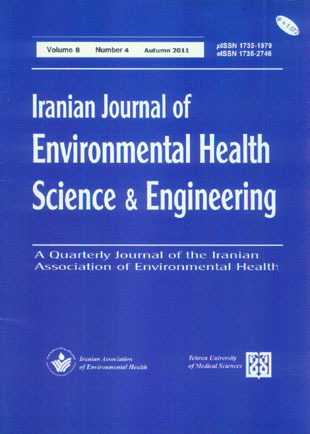ISSUES AND CHALLENGES IN WATERGOVERNANCE IN MALAYSIA
Author(s):
Abstract:
Water is one of the central issues in the 21st century in Malaysia. Of all the issues associated with water management, governance is considered of primary importance. This paper examines water governance in Malaysia and concludes that it is successful in the sense that water is served to more than 95 % of the population, water tariffs are some of the cheapest in the world, the poor is not denied access, and water supply is 24 hours per day. However, there are many areas that need improvement to achieve better governance in water management. One is to improve Government-controlled water departments by ensuring their workers are well-trained and committed to excellence, public service and integrity instead of the usual laid-back government-servant mentality. Another is to ensure politicians do not interfere in the water sector. Currently, it is widely believed that many water companies are linked to powerful politicians, making the awarding of contracts, tariffs and other management aspects non-transparent and ineffective. Ideally, politicians that govern should act on the professional advice of the water managers and not the other way around. Another area of water governance that needs to be intensified is the war against corruption. In the water sector, there should also be an all-out war on corruption at all levels of governance, in both the public and private sectors. Government should make all contracts in the water sector awarded through open tender with public consultation to ensure professionalism, fairness, transparency, accountability and good governance. Equally, all contracts and other relevant documents drawn up between the government and private companies should not be "classified" but instead be public documents available to the public for discussion, review and improvement. Another area to ensure better governance is for the government to engage and actively involved all stakeholders in the water sector, especially civil society and NGOs. Finally, the Federal Government should reconsider its plans to centralize the water sector by taking it over from State Governments. This is because, centralization would be contradictory towards involvement of all stakeholders and also pose problems to many states that had already privatized the water sector. Finally, governance of the water sector should be based on Integrated Water Resources Management which is the logical way forward in ensuring sustainable development.
Keywords:
Language:
English
Published:
Iranian Journal of Environmental Health Science and Engineering, Volume:6 Issue: 3, summer 2009
Page:
143
magiran.com/p651754
دانلود و مطالعه متن این مقاله با یکی از روشهای زیر امکان پذیر است:
اشتراک شخصی
با عضویت و پرداخت آنلاین حق اشتراک یکساله به مبلغ 1,390,000ريال میتوانید 70 عنوان مطلب دانلود کنید!
اشتراک سازمانی
به کتابخانه دانشگاه یا محل کار خود پیشنهاد کنید تا اشتراک سازمانی این پایگاه را برای دسترسی نامحدود همه کاربران به متن مطالب تهیه نمایند!
توجه!
- حق عضویت دریافتی صرف حمایت از نشریات عضو و نگهداری، تکمیل و توسعه مگیران میشود.
- پرداخت حق اشتراک و دانلود مقالات اجازه بازنشر آن در سایر رسانههای چاپی و دیجیتال را به کاربر نمیدهد.
In order to view content subscription is required
Personal subscription
Subscribe magiran.com for 70 € euros via PayPal and download 70 articles during a year.
Organization subscription
Please contact us to subscribe your university or library for unlimited access!


